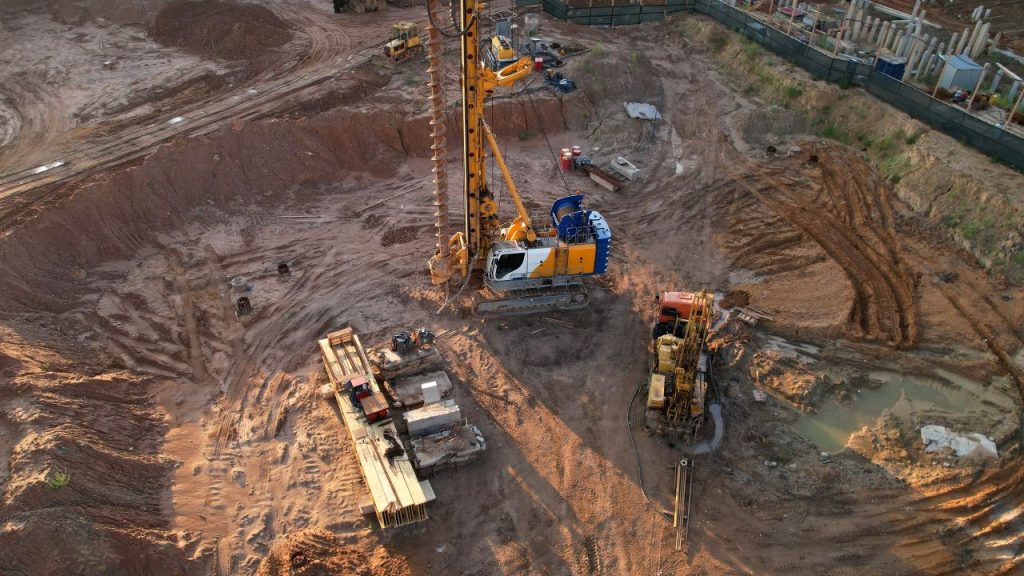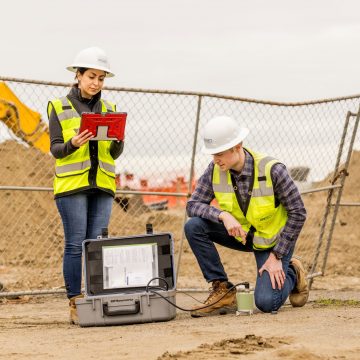How Consulting Engineers can Save You Time, Stress, and Money.
How Consulting Engineers can Save You Time, Stress, and Money.
Blog Article
The Basic Principles Of Consulting Engineers
Table of Contents6 Easy Facts About Consulting Engineers ShownAn Unbiased View of Consulting EngineersSee This Report about Consulting EngineersConsulting Engineers Can Be Fun For AnyoneThe Ultimate Guide To Consulting EngineersThe 45-Second Trick For Consulting EngineersThe Of Consulting Engineers
In situations where the existing dirt can not support a structure, ground enhancement techniques are utilized. These can include compaction, dirt support with geosynthetics, and the addition of stabilizing representatives.Grouting strategies fill gaps in the soil to boost bearing capacity and decrease settlement, developing a more secure atmosphere for occupants in earthquake-prone areas. The planet is an awesome and in some cases capricious partner in building and construction ventures. Construction sites might offer difficult soil conditions, such as large clay or karst topography. By dealing with these problems head-on, jobs can continue with confidence despite the hardest surfaces.

All About Consulting Engineers
Skyscrapers in city facilities usually encounter the obstacle of restricted area and the presence of bordering structures. Geotechnical engineering has played a critical role in the success of such jobs by making use of cutting-edge structure designs that lessen impact on the surrounding atmosphere. By utilizing methods like base and micro-piling, designers have had the ability to sustain skyscrapers on websites that were previously believed unsuitable.
Whether it's the foundation of a new home, the bases of an enormous bridge, or the stabilization of a high-rise, the duty of geotechnical engineering is omnipresent. By comprehending the planet, we lead the method for smarter, stronger, and more secure building and construction practices (Consulting Engineers). The cooperative relationship in between geotechnical design and modern building and construction is among long-lasting value and need
Facts About Consulting Engineers Revealed
To offer the finest experiences, we utilize innovations like cookies to shop and/or access tool information. Consenting to these modern technologies will enable us to process information such as surfing actions or special IDs on this site.
They carry out site investigations, gather examples, carry out laboratory examinations, and evaluate data to review the viability of the ground for building jobs. Based on their findings, geotechnical designers offer suggestions for structure style, incline stability, retaining frameworks, and mitigation of geotechnical risks - Consulting Engineers. They collaborate with various other specialists, such as engineers, architectural designers, and building teams, to ensure that geotechnical factors to consider are incorporated right into the overall task style and execution
They translate the information to comprehend the homes and habits of the dirt and rock, including their stamina, permeability, compaction features, and groundwater problems. Geotechnical Analysis and Style: Geotechnical engineers examine the data collected throughout website investigations to evaluate the stability and suitability of the website for building tasks. They perform geotechnical calculations and modeling to review factors such as birthing capacity, negotiation, slope stability, side earth stress, and groundwater circulation.
Unknown Facts About Consulting Engineers
Foundation Layout: Geotechnical designers play a critical function in developing structures that can securely support the intended framework. They assess the dirt conditions and tons requirements to establish the proper structure kind, such as shallow structures (e.g., grounds), deep foundations (e.g., stacks), or specialized strategies like soil enhancement. They consider elements such as negotiation restrictions, bearing ability, and soil-structure communication to create optimal foundation designs.
Here are some kinds of geotechnical designers: Structure Engineer: Structure engineers specialize in designing and evaluating structures for structures. They assess the dirt problems, tons needs, and website characteristics to figure out the most proper structure type and style, such as superficial structures, deep structures, or specialized techniques like heap foundations.
They carry out area screening, gather samples, and evaluate the accumulated data to characterize the dirt residential properties, geologic formations, and groundwater problems at a website. Geotechnical Instrumentation Engineer: Geotechnical instrumentation engineers focus this content on tracking and measuring the habits of soil, rock, and structures. They set up and preserve instrumentation systems that monitor aspects such as soil settlement, groundwater levels, slope activities, and structural variations to assess efficiency and offer very early warnings of possible problems.
The Greatest Guide To Consulting Engineers
In the workplace atmosphere, geotechnical engineers use specialized software application tools to perform calculations, produce layouts, and assess information. They prepare records, evaluation job specs, communicate with customers and team members, and coordinate task tasks. The workplace setup supplies a favorable atmosphere for research study, evaluation, and partnership with various other professionals associated with the task.

Geotechnical engineers also function in specialized geotechnical research laboratories. In these centers, they perform experiments, execute examinations on soil and rock samples, and evaluate the engineering homes of the products. Geotechnical laboratory designers function extensively in these atmospheres, managing screening devices, running instruments, and videotaping data. They team up with other laboratory staff to make sure accurate and reliable testing outcomes.
Consulting Engineers - Questions

This info can be utilized for a great deal extra. Keep reading as we note down the numerous objectives of geotechnical examinations and why it is crucial in geotechnical design. Geotechnical site investigation is essential in the building procedure because it aims to comprehend and provide info on the website's subsurface problems.
These consist of the groundwater problems, design problems, sorts of dirts or rock, and gauging the thermal resistivity of dirts. Such conditions establish many factors, including exactly how expensive the building task will be, what type of structure is needed, exactly how the framework will certainly be constructed, and so on. Despite the type of construction being done, whether a house, pipeline, or a massive mall, a geotechnical investigation should be accomplished.
See This Report on Consulting Engineers
The essential steps in lugging visit their website them out stay the very same. They are: This is where geotechnical engineering occurs to understand the region's geology. It can be done with geologic mapping, photogrammetry, or geophysical approaches. Overall, it is done to assess the physical problems of the dirt.
Once this is done, the engineers will certainly work with the client to see what kind of building they call for. This is commonly where they utilize borings or borings to take out dirt samples. Relying on the client's demands, these samples may likewise obtain checked in laboratories. Other than this, the engineers will also aesthetically assess the soil for rock and water.
These are normally done through geophysical examinations and clinical researches, which are quite useful for revealing underground anomalies or utilities. As soon as designers have actually performed their investigation, they will need to establish recommended services. They will certainly then offer services with exactly how to approach the website's construction. Comprehending subsurface conditions before the building of the website is vital to make certain that the structure is developed securely and can be sufficiently supported.
Report this page